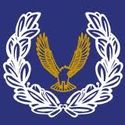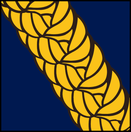Cadet Classification Training
The ATC has a fixed training syllabus and uses a graded series of classifications to recognise individual cadet's progress from Junior Cadet to Master Air Cadet and Instructor Cadet. When cadets first join the Air Cadets they become a JUNIOR CADET. This is usually for a period of one month after which they are assessed, enrolled as a cadet and issued with their uniform.When you are enrolled into the ATC, you become a Second Class Cadet. You stay at this classification until you pass your First Class assessment. Classification training is done at the Squadron using the Air Cadets online Ultilearn training facility. Classification assessments are also taken on-line. All cadets are given their personal log-in details so they can catch-up and revise at home if they wish.
While you are a Junior Cadet you learn about the basics of the Air Cadets. These include: -
While you are a Junior Cadet you learn about the basics of the Air Cadets. These include: -
- The History and Organisation of the Air Cadets
- Badges of Rank and Ensigns
- Simple Drill Movements
- Dress, Discipline and Basic RAF Etiquette






